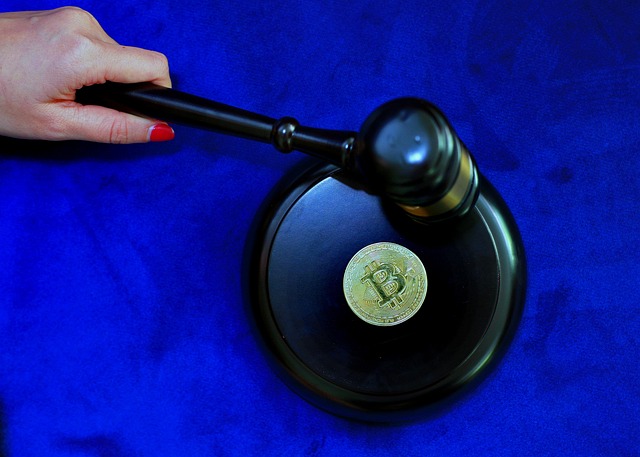The Blockchain Group adds 580 BTC as stock jumps 226% since Bitcoin pivot
France-based The Blockchain Group has added another 580 Bitcoin to its Bitcoin treasury, following a 225% surge in its stock price since it began hoarding Bitcoin in November.This is the largest of the three Bitcoin purchases made by the organization, per a March 26 after-hours statement. At the time of publication, 580 Bitcoin is worth $50.64 million, with Bitcoin’s (BTC) price trading at $87,311, according to CoinMarketCap data.First purchases at pivotal Bitcoin momentsThe Blockchain Group’s first two Bitcoin purchases happened around significant milestones for the Bitcoin industry. It bought 15 BTC on Nov. 5, the same day Donald Trump won the United States presidential election and before Bitcoin went on a month-long rally that saw it reach $100,000 for the first time in December.Bitcoin is up 24.38% over the past 12 months. Source: CoinMarketCapThe second purchase was 25 Bitcoin on Dec. 4, when Bitcoin was trading at $96,000 during the post-election rally, with anticipation growing about a six-figure price — which happened the next day.March 26 isn’t a major date for Bitcoin, but it’s five days before the end of Q1 2025 — a quarter where Bitcoin has underperformed compared to previous years’ first quarters — and it’s also approaching the first anniversary of the Bitcoin halving on April 20. According to The Blockchain Group’s website, the Bitcoin strategy was an effort to leverage the holding company’s excess cash and appropriate financing instruments.The Blockchain Group (ALTBG) is listed on Euronext Paris, Europe’s second-largest stock exchange by market cap. The firm refers to itself as a “global umbrella” of companies specializing in data intelligence, AI and decentralized technology. Since it began its Bitcoin accumulation on Nov. 5, ALTBG has risen 225% to 0.48 euros ($0.52), according to Google Finance data.The latest Bitcoin purchase was announced after the market already closed on March 26.Blockchain Group SA stock has soared since it announced its Bitcoin accumulation. Source: Google FinanceIt comes on the same day that GameStop shares jumped nearly 12% after the company announced plans to purchase Bitcoin.The company plans to finance the purchase through debt financing. After markets closed on March 26, GameStop announced a $1.3 billion convertible notes offering.Related: Bitcoin must break this level to resume bull market as $2.4B in BTC leaves exchangesN7 Capital founder Anton Chashchin said in a recent statement viewed by Cointelegraph, “It’ll be interesting to observe if other companies take up the baton from GameStop and where this will lead the market.”Meanwhile, US-based angel investor Jason Calacanis said buying Bitcoin was a solution well-suited for public companies that do not have a suitable business model.Michael Saylor, the original advocate for corporate Bitcoin adoption, has led his firm, Strategy, to recently cross the 500,000 Bitcoin mark, currently holding 506,137 Bitcoin.Between November and January, Strategy maintained a 12-week consecutive Bitcoin buying streak.Magazine: Ex-Alameda hire on ‘pressure’ to not blow up Backpack exchange: Armani Ferrante, X Hall of FlameThis article does not contain investment advice or recommendations. Every investment and trading move involves risk, and readers should conduct their own research when making a decision.
OpenAI expects to 3X revenue in 2025 but Chinese AI firms are heating up
OpenAI expects to more than triple its revenue this year to $12.7 billion, despite fast-growing competition from the likes of China’s DeepSeek and other competitors making rapid progress.The ChatGPT creators also expect its revenue target for 2025 to more than double to $29.4 billion by 2026, Bloomberg reported on March 26, citing a person familiar with the matter.The 2025 estimate is a little higher than the $11.6 billion revenue target that OpenAI was reportedly eyeing for 2025, The New York Times reported last September.Bloomberg noted that the bulk of ChatGPT’s revenue has come from its paid AI software subscription offerings for consumers and businesses.OpenAI reportedly hit 1 million paid users for the corporate versions of ChatGPT last September, while the company more recently added a $200 monthly ChatGPT Pro option.The Sam Altman-led firm does not expect to be cash-flow positive until 2029, when it expects its revenue to top $125 billion, the person told Bloomberg.OpenAI is reportedly close to finalizing a $40 billion funding round led by SoftBank Group at a valuation of up to $300 billion, Bloomberg reported on March 26. The firm is also looking to convert its nonprofit business model into a for-profit venture.Competition heats up between US and Chinese AI playersWhile the release of DeepSeek’s ChatGPT-competitor “R-1” model sent shockwaves through the AI industry in late January, it sparked a wave of several other high-quality, low-cost AI solutions from other Chinese tech firms, Bloomberg reported on March 26.Baidu Inc. launched its “Ernie X1” model to compete with DeepSeek’s R-1 model in China, while Alibaba Group launched its new open-source AI model for cost-effective AI agents on March 26.Source: David SacksTencent Holdings also unveiled an AI chatbot of its own under subsidiary firm Ant Group Co, while DeepSeek released its latest model — DeepSeek-V3-0324 — on March 24.Related: Cathie Wood to kick off El Salvador’s AI public education programWhile it remains to be seen how these Chinese models truly stack up against OpenAI’s products, the newer and often cheaper options are putting more pressure on the business models of leading US companies, Balaji Srinivasan, a tech investor and former general partner at tech-focused venture capital firm Andreessen “a16z” Horowitz said in a March 22 X post.“China is trying to do to AI what they always do: study, copy, optimize, and then bankrupt everyone with low prices and enormous scale.”Lee Kai-fu, CEO of Chinese startup 01.AI told Reuters on March 25 that DeepSeek’s efforts have positioned Chinese AI firms only three months behind their US counterparts after previously being around six to nine months behind.Source: The Short BearMeanwhile, OpenAI’s CEO Sam Altman said on Feb. 12 that his firm is looking to ship GPT-4.5 and GPT-5 in the coming weeks or months.Plus and Pro subscribers will be able to run GPT-5 at a “higher level of intelligence” which will incorporate voice, canvas, search, deep research features and more, he said in OpenAI’s technical roadmap update.Among OpenAI’s competitors in the US market are Anthropic, DeepMind, xAI and Google’s Gemini.Magazine: What are native rollups? Full guide to Ethereum’s latest innovation
Crypto urges Congress to change DOJ rule used against Tornado Cash devs
A coalition of crypto firms has urged Congress to press the Department of Justice to amend an “unprecedented and overly expansive” interpretation of laws that were used to charge the developers of the crypto mixer Tornado Cash.A March 26 letter signed by 34 crypto companies and advocate groups sent to the Senate Banking Committee, House Financial Services Committee and the House and Senate judiciary committees said the DOJ’s take on unlicensed money-transmitting business means “essentially every blockchain developer could be prosecuted as a criminal.”The letter — led by the DeFi Education Fund and signed by the likes of Kraken and Coinbase — added that the Justice Department’s interpretation “creates confusion and ambiguity” and “threatens the viability of U.S.-based software development in the digital asset industry.”The group said the DOJ debuted its position “in August 2023 via criminal indictment” — the same time it charged Tornado Cash developers Roman Storm and Roman Semenov with money laundering.Storm has been released on bail, has pleaded not guilty and wants the charges dropped. Semenov, a Russian national, is at large.Source: DeFi Education FundThe DOJ has filed similar charges against Samourai Wallet co-founders Keonne Rodriguez and William Lonergan Hill, who have both pleaded not guilty.The crypto group’s letter argued that two sections of the US Code define a “money transmitting business” — Title 31 section 5330, defining who must be licensed and Title 18 section 1960, which criminalizes operating unlicensed.It added that 2019 guidance from the Treasury’s Financial Crimes Enforcement Network (FinCEN) gave examples of what money-transmitting activities and said that “if a software developer never obtains possession or control over customer funds, that developer is not operating a ‘money transmitting business.’”The letter argued that the DOJ had taken a position that the definition of a money transmitting business under section 5330 “is not relevant to determining whether someone is operating an unlicensed ‘money transmitting business’ under Section 1960” despite the “intentional similarity” in both sections and FinCEN’s guidance.Related: Hester Peirce calls for SEC rulemaking to ‘bake in’ crypto regulation The group accused the DOJ of ignoring both FinCEN’s guidance and parts of the law to pursue its own interpretation of a money-transmitting business when it charged Storm and Semenov.They said the result had seen “two separate US government agencies with conflicting interpretations of ‘money transmission’ — an unclear, unfair position for law-abiding industry participants and innovators.”The letter said that if not addressed, the Justice Department’s interpretation would expose non-custodial software developers “within the reach of the U.S. to criminal liability.”“The resulting, and very rational, fear among developers would effectively end the development of these technologies in the United States.”In January, Michael Lewellen, a fellow of the crypto advocacy group Coin Center, sued Attorney General Merrick Garland to have his planned release of non-custodial software declared legal and to block the DOJ from using money transmitting laws to prosecute him.Lewellen said the DOJ “has begun criminally prosecuting people for publishing similar cryptocurrency software,” which he claims extended the interpretation of money-transmitting laws “beyond what the Constitution allows.”Magazine: Meet lawyer Max Burwick — ‘The ambulance chaser of crypto’
Hyperliquid JELLY ‘exploiter’ could be down $1M, says Arkham
The trader behind recent “suspicious market activity” on Hyperliquid that led to the freeze and delisting of the Jelly my Jelly (JELLY) memecoin is potentially down almost $1 million from their actions. Blockchain analytics firm Arkham Intelligence said in a March 26 post to X that the trader attempted to manipulate the system to profit from price movements, withdrawing collateral before Hyperliquid’s liquidation system could catch up.The trader opened three accounts within five minutes of each other, two with $2.15 million and $1.9 million long positions, and the third a $4.1 million short, to cancel out the long positions, according to Arkham in a post-mortem report. “This allowed him to build up leverage in an attempt to drain funds from Hyperliquid,” Arkham said.Source: ArkhamWhen the price of Jelly pumped by over 400%, the $4 million short position entered liquidation, but the open short didn’t liquidate immediately because it was too large and instead passed to the Hyperliquidity Provider Vault (HLP), which is supposed to liquidate the position.At the same time, the trader withdrew collateral from the other two accounts while having a “7-figure positive PnL to withdraw from,” Arkham said.However, the “exploiter” quickly hit a wall when the accounts, which still had millions in unrealized profit and loss, were restricted to reduce-only orders, forcing them to sell the tokens in the first account on the market to recoup some of the funds.Source: ArkhamHyperliquid eventually closed the Jelly token market at a price of 0.0095, the same price as the trader’s short trade, which “zeroed out all floating PnL on the first two exploiter accounts.”In total, Arkham says the trader withdrew $6.26 million, but at least $1 million is still in the accounts.“Assuming he can withdraw this at some point in the future, his actions on Hyperliquid have cost him a total of $4,000. If he is unable to, he faces a loss of almost $1 million,” the blockchain analytics firm said.Hyperliquid has since delisted perpetual futures tied to the JELLY token, citing evidence of suspicious market activity. Other traders have been using similar tactics This isn’t the first time Hyperliquid has had issues like this. On March 14, Hyperliquid increased margin requirements for traders after its liquidity pool lost millions of dollars during a massive Ether (ETH) liquidation.Related: Bitget CEO slams Hyperliquid’s handling of “suspicious” incident involving JELLY tokenA whale trader intentionally liquidated a roughly $200 million Ether long position on March 12, causing HLP to lose $4 million while unwinding the trade. Traders have also begun hunting whales on the platform, targeting prominent leveraged positions in a “democratized” attempt to liquidate them.Magazine: What are native rollups? Full guide to Ethereum’s latest innovation
Resolution to kill IRS DeFi broker rule heads to Trump’s desk
The US Senate has taken a major step towards protecting the decentralized finance (DeFi) industry by passing a resolution to kill a controversial rule that would have required DeFi protocols to report to the Internal Revenue Service (IRS). This resolution, which has now been sent to US President Donald Trump’s desk, aims to prevent the expansion of existing IRS reporting requirements to include crypto assets.
The rule, known as the IRS DeFi broker rule, was introduced by the Biden administration and has faced significant backlash from the crypto community. It would have required DeFi protocols to report user information to the IRS, potentially compromising the privacy and security of DeFi users.
On March 26, the Senate voted 70-28 in favor of the resolution, with bipartisan support. This follows an earlier vote in March, where the resolution was passed by the Senate but was sent back for a final vote before being sent to Trump. The House also voted in favor of the resolution.
The White House’s AI and crypto czar, David Sacks, has publicly stated that Trump supports killing the rule. This is a significant win for the DeFi industry, as it shows that the government is listening to the concerns of the crypto community and taking steps to protect their interests.
This resolution is a crucial development for the DeFi industry, which has been growing rapidly in recent years. DeFi protocols allow for decentralized lending, borrowing, and trading of digital assets, providing users with more control and autonomy over their finances. The industry has faced regulatory challenges in the past, but this resolution is a positive step towards creating a more favorable environment for DeFi to thrive.
It is important to note that this is a developing story, and more information will be added as it becomes available. However, the passing of this resolution is a significant victory for the DeFi industry and a clear indication that the government is taking steps to support and protect the crypto community.
In conclusion, the US Senate’s decision to pass this resolution is a major win for the DeFi industry and a testament to the power of community advocacy. It is a step towards creating a more favorable regulatory landscape for DeFi and ensuring the continued growth and innovation of this important sector.
Argentine poll suggests 57% don’t trust President Milei after LIBRA scandal
Nearly 58% of Argentinians said they don’t trust President Javier Milei following his involvement in the $4.6 billion Libra crypto scandal, according to a recent poll. “More than a month after the crypto fraud scandal broke out, how much do you trust Milei today?” polling platform Zuban Córdoba asked 1,600 respondents in its recently released March survey, to which 57.6% replied that they disapprove of him, while 36% said Milei still has their trust.The remaining 6.4% said they weren’t sure, the report stated.Percentage of trust that Argentines have in Milei after the Libra scandal. Source: Zuban CórdobaThis was the first time the question was asked within a Zuban Córdoba poll. However, several other metrics, such as Milei’s image and the national management approval rating, have plummeted considerably in recent months.The latter of those metrics, for example, fell from 47.3% in November to 41.6% in March.“Fifty-eight percent disapprove of Javier Milei’s management. Negativity increases slowly but steadily and seems to find no ceiling,” Zuban Córdoba said. “The change in tone and evaluation of the government is consolidating as more and more problematic fronts appear on the political agenda.”Zuban Córdoba conducted its study between March 12 and March 14, and the sample size of 1,600 participants had a confidence level of 95% and a sampling error of 2.45%.Another survey from the University of San Andrés conducted between March 11-20 with 1,020 respondents found that Milei’s approval rating dropped to 45%.However, not all polls paint the same picture of President Milei. Data collected from Morning Consult between Feb. 27 and March 5 indicates that Milei still possessed a 62.4% approval rating after the Libra scandal.Related: LIBRA memecoin orchestrators named as defendants in US class-action suitMilei has distanced himself from Libra since the scandal, arguing he didn’t “promote” the LIBRA token in a controversial Feb. 14 X post — as fraud lawsuits filed against him allege — and instead merely “spread the word” about it.The Libra (LIBRA) token soared to a $4.6 billion market cap shortly after Milei’s X post before tanking nearly 94% over the next few hours.Argentina’s opposition party called for Milei’s impeachment but has had limited success thus far.President Milei’s party still in lead as election loomsThe controversy comes as the next Argentine election is set to take place on Oct. 26.Despite the negative results, Milei’s La Libertad Avanza party is still most likely to take out the next Argentine election, with 36.7% in favor of the libertarian party, while Unión por la Patria comes in next at 32.5%.However, only 43% of Argentine respondents believe that Milei — an economist prior to taking office — has sufficiently controlled inflation, while 63% of those polled oppose Milei’s efforts to secure a new loan from the International Monetary Fund.Magazine: Meet lawyer Max Burwick — ‘The ambulance chaser of crypto’
Wyoming's Mark Gordon says state should issue stablecoin by July
Wyoming Governor Mark Gordon said the state’s proposed stablecoin might be ready to launch by July, with the Wyoming Stable Token Commission announcing interoperability protocol LayerZero as a partner for the token launch.Speaking at the DC Blockchain Summit on March 26, Gordon praised the speed and efficiency of the Wyoming state government in embracing blockchain technology. Anthony Apollo, the executive director of the Wyoming Stable Token Commission, also confirmed:”The Stable Token Commission has formally engaged LayerZero as our token development and distribution partner, and we have stable tokens — Wyoming stable tokens — on several test networks.”Wyoming, which is represented by pro-crypto Senator Cynthia Lummis, has been planning a state-issued stablecoin for years and has a history of embracing innovation in digital assets.Governor Mark Gordon of Wyoming speaking at the 2025 DC Blockchain Summit. Source: SeiRelated: Yield-bearing stablecoins could kill banking — US Senator GillibrandWyoming Stable Token CommissionWyoming lawmakers introduced the “Wyoming Stable Token Act” in February 2022 to establish a state-issued stablecoin pegged to the value of the US dollar and redeemable for fiat.The bill was signed into law in March 2023, enabling the state treasury to develop a team of professional accountants, auditors, and technical experts to issue and manage the state’s stablecoin supply.Following the passage of the Stable Token Act, the state began staffing its Stable Token Commission with officers and executives to research and develop the state’s stablecoin.The Wyoming Stable Token Act. Source: Wyoming LegislatureIn August 2024, Governor Mark Gordon told an audience at the Wyoming Blockchain Symposium that the state was eyeing a Q1 2025 launch window for the stablecoin, which would be backed by short-term US Treasury Bills and repurchase agreements.At the time, Gordon slammed the “too big to fail” ethos of US economics post-2008 financial crisis and called the Federal Reserve Bank a “drag on innovation.”More recently, Anthony Apollo, the executive director of the Wyoming Stable Token Commission, told Cointelegraph that the state’s public budget should be onchain to ensure transparency, accountability, and efficiency in government spending.Magazine: Bitcoin payments are being undermined by centralized stablecoins
Hester Peirce calls for SEC rulemaking to ‘bake in’ crypto regulation
US Securities and Exchange Commission (SEC) member Hester Peirce offered a few suggestions for longer-lasting changes in crypto regulation between administrations with potentially different views. Speaking at the DC Blockchain Summit on March 26, Peirce, who heads the SEC’s crypto task force, said she expected that the commission could create more “durability” for digital asset regulations through rulemaking at the agency and legislation in Congress. Such rulemaking and laws, according to the SEC commissioner, would be in contrast to guidance issued by the agency, such as a recent statement suggesting that memecoins do not qualify as securities. “I hope people won’t be sitting around thinking about the Howey test,” said Commissioner Peirce, speculating on the direction the SEC was headed. “Your lawyers have to think about these things, I’m not saying that they’ll not be relevant, but it shouldn’t be the kind of thing that is driving what you decide to build. I want there to be enough clarity on the question of what falls in our jurisdiction and then, if it does, how you can move forward.”SEC Commissioner Hester Peirce speaking at the DC Blockchain Summit on March 26. Source: RumblePeirce’s remarks came as the SEC has dropped several investigations or enforcement actions against major crypto firms, including Coinbase, Ripple, Kraken and Immutable. Some see the commission’s change in policy under acting chair Mark Uyeda as an attempt by US President Donald Trump to have the agency drop cases against firms that supported his 2024 campaign.Related: SEC plans 4 more crypto roundtables on trading, custody, tokenization, DeFiSince the 119th session of Congress started in January, lawmakers have suggested that they intend to move forward with a market structure bill clarifying the roles the SEC and Commodity Futures Trading Commission will have over digital assets. On his third day in office, Trump signed an executive order establishing a working group that would explore, among other things, a regulatory framework for stablecoins.Is a new SEC chair on the horizon?Paul Atkins, whom Trump nominated as an SEC commissioner in December, will appear before US lawmakers in the Senate Banking Committee on March 27 and likely answer questions about his views on crypto regulation. Many in the crypto industry have indicated support for the former commissioner, who holds assets in real-world asset tokenization platform Securitize and controls a consulting firm tied to FTX.If his nomination moves through the banking committee, it’s unclear whether the full Senate will vote to confirm Atkins to a term ending in 2031. He is expected to take over as SEC chair from Commissioner Uyeda. Magazine: SEC’s U-turn on crypto leaves key questions unanswered








